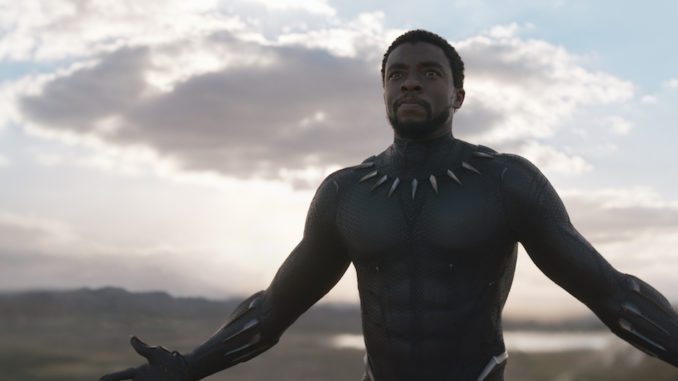
Wakanda is one of the strangest countries in a fictitious superhero universe, and that’s saying something given that that we’ve seen civilisations of Norse gods, secret hidden societies of faux mutants (Inhumans), and we know that there’s an alien species of walking, talking trees somewhere out there.
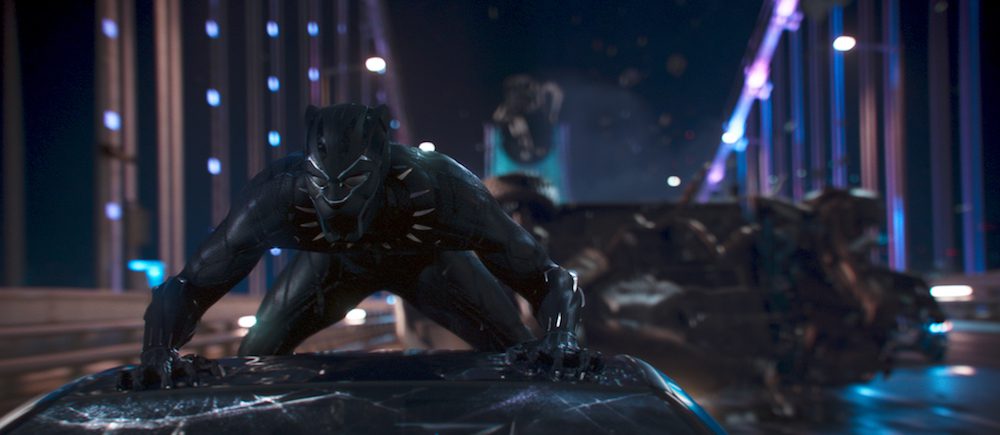
The (secretly) technologically advanced African nation of Wakanda appears in “Black Panther”, the eighteenth instalment in the Marvel Cinematic Universe. It follows the adventures of the eponymous hero, who is also the king of Wakanda (after his father died in “Captain America: Civil War”). He has enhanced physical strength, speed, and stamina (a little like Captain America), but he wears an amazingly durable black panther costume which also happens to be able to redirect kinetic energy, plus he’s got cat claws.
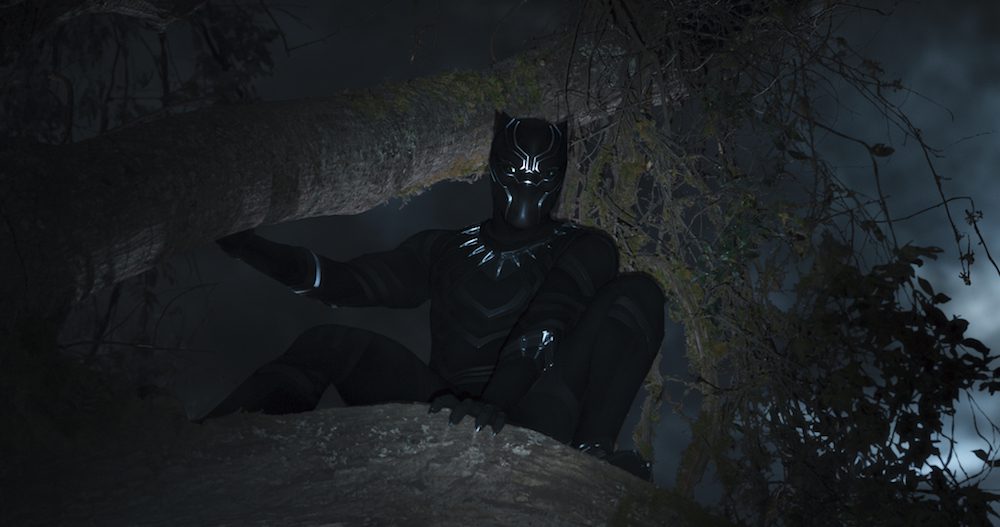
Sounds high concept? Yes, but “Black Panther” does a pretty good job of explaining all the backstory of T’Challa, the Black Panther, without sounding too expositional. In fact, it takes the audience through all this background in an explorative fashion, without having to rely on the usual technique of having another character explain all this information to another character. Thus, when a third character (the token white guy) enters Wakanda for the first time later in the film, it gives the audience a sense of accomplishment, since they know more about this fictional African nation than some of the characters do.
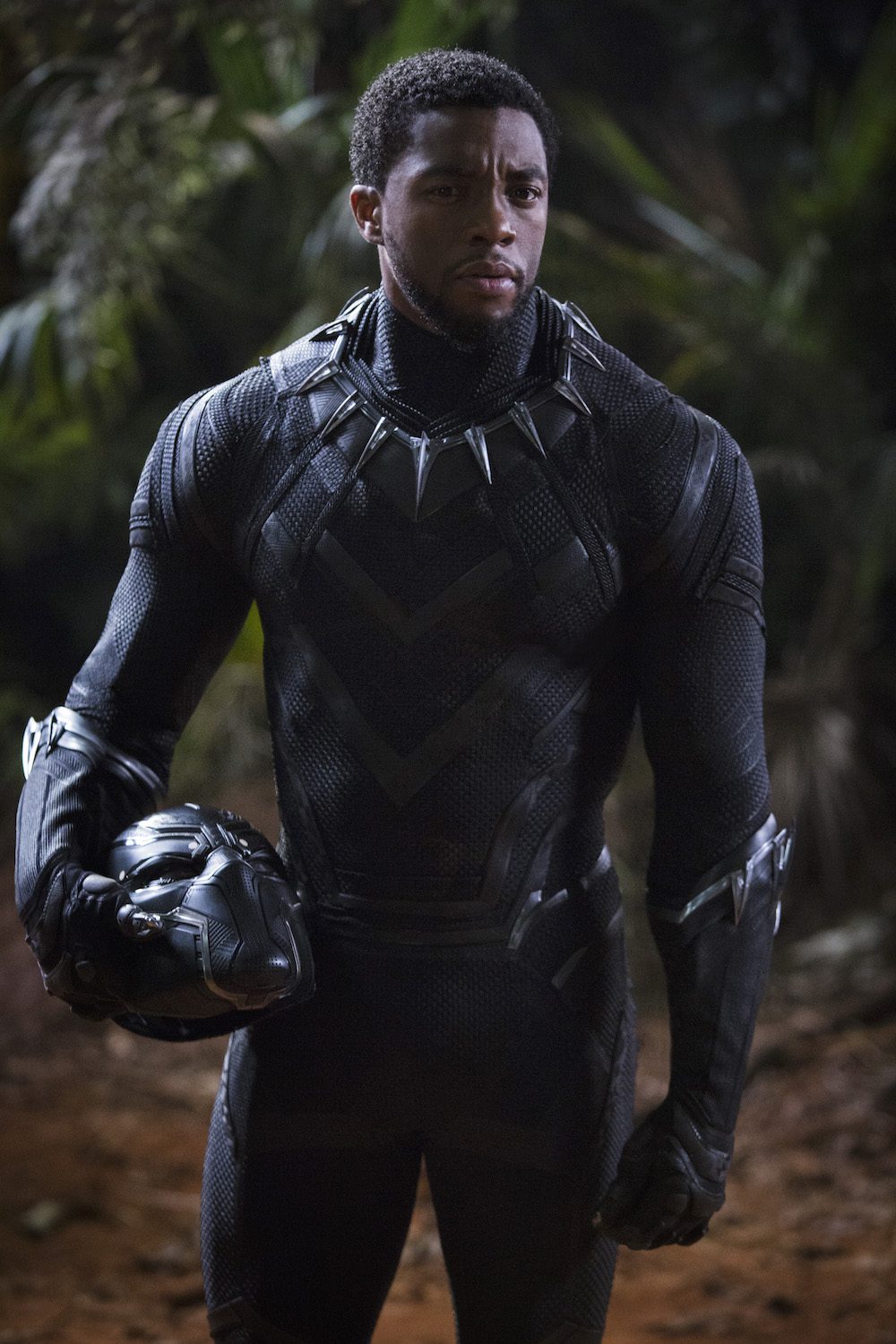
Despite the ostensible afrofuturism (everyone’s favourite buzzword these days), Wakandan technology looks suspiciously similar to, well, most other technologically advanced societies in the Marvel Cinematic Universe. The first thing that comes to mind is how similar the tech looks when compared to the alien planet of Sakaar in “Thor: Ragnarok”. It also looks like the tech in “Agents of SHIELD”. It does establish a sense of continuity regarding how technology looks in the Marvel screen universe though.
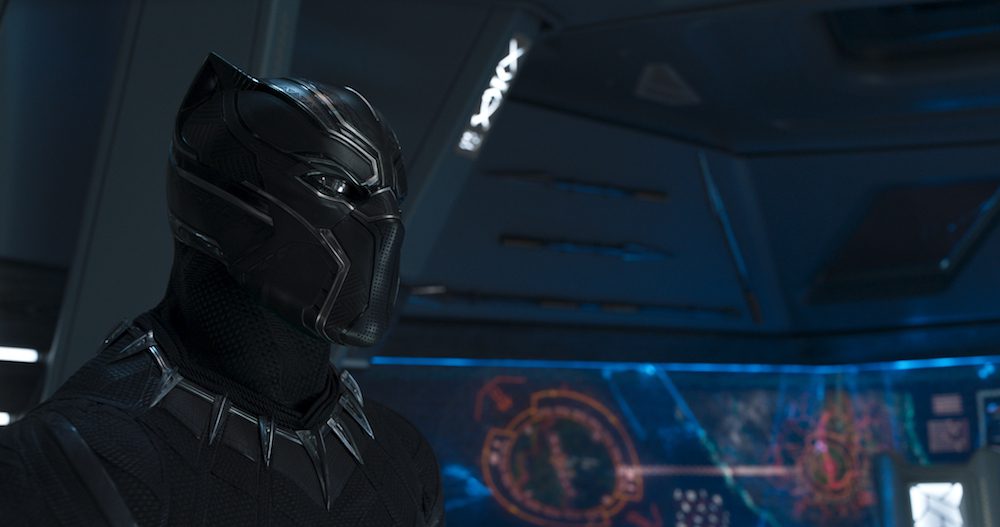
That being said, the costume design is visually distinct from the rest of the Marvel Cinematic Universe, which truly helps establish the unique culture of Black Panther’s kingdom. Since it looks like Wakanda will play a much larger role in the other MCU films in the future, it’s important that audiences are able to instantly recognise citizens and creations from this country.
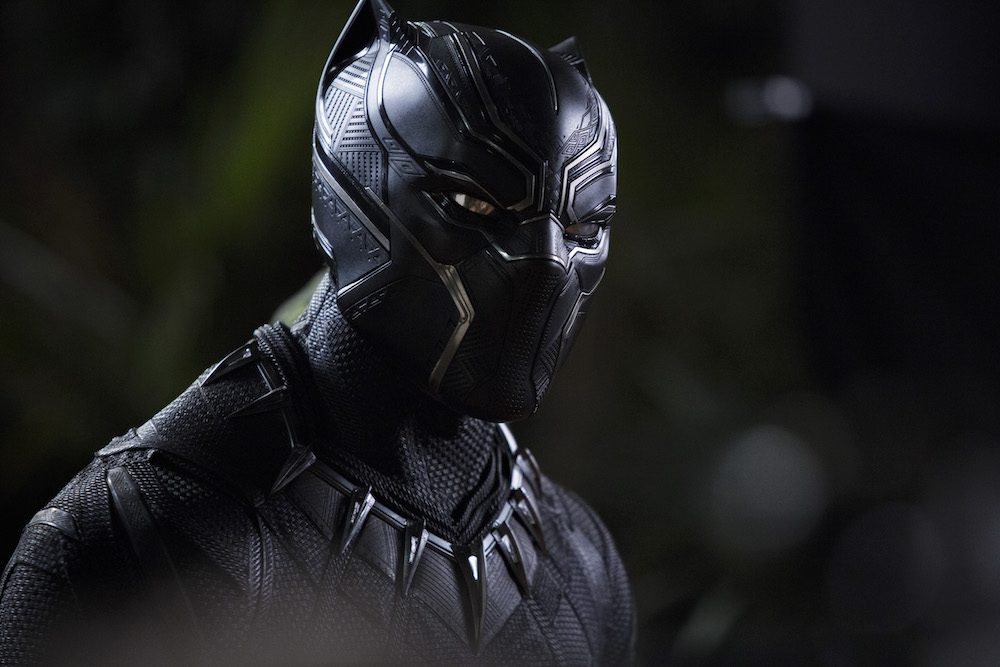
The other thing that really sticks out is the strange and inconsistent bureaucracy in Wakanda, which seems rather malleable when the plot calls for it. Black Panther’s ascension to the throne requires a hefty number of rituals, ceremonies, and other demonstrations of proof – yet all this seems to be easily circumvented later in the film. I’m not a civil servant, but even I’m shocked at how the checks and balances of the Wakandan government were so easily defeated by a pushy, insane, and abrasive individual.
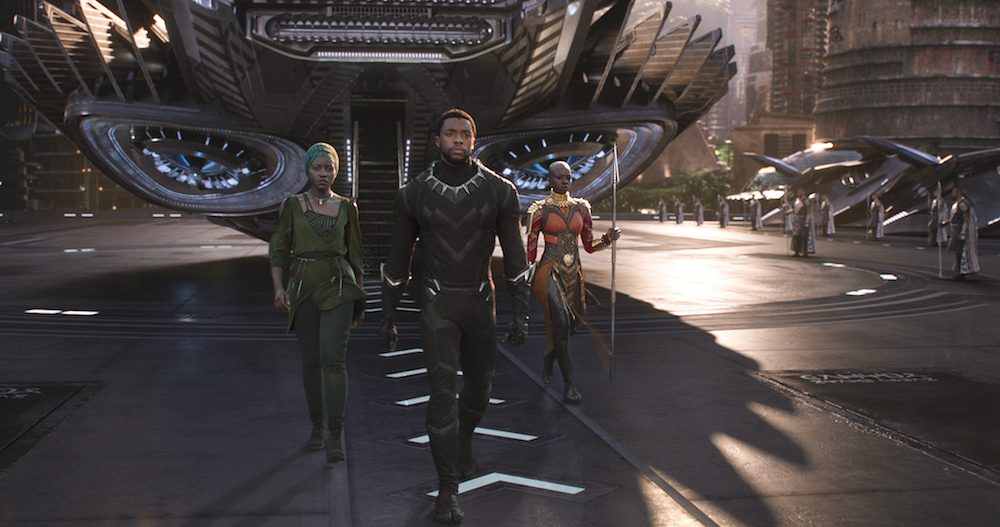
“Black Panther” isn’t just about civil servants duking it out for the throne though – the first Act feels very much like a spy film, replete with a technological expert showing Black Panther his new gadgets and toys, fast cars and a chase sequence, and some level of espionage and high society parties (although admittedly, it’s not that believable that Black Panther and his crew can blend in, given how loud their clothes are). It’s a fun diversion from the usual modern fantasy formula, and this experimental sequence paid off well.
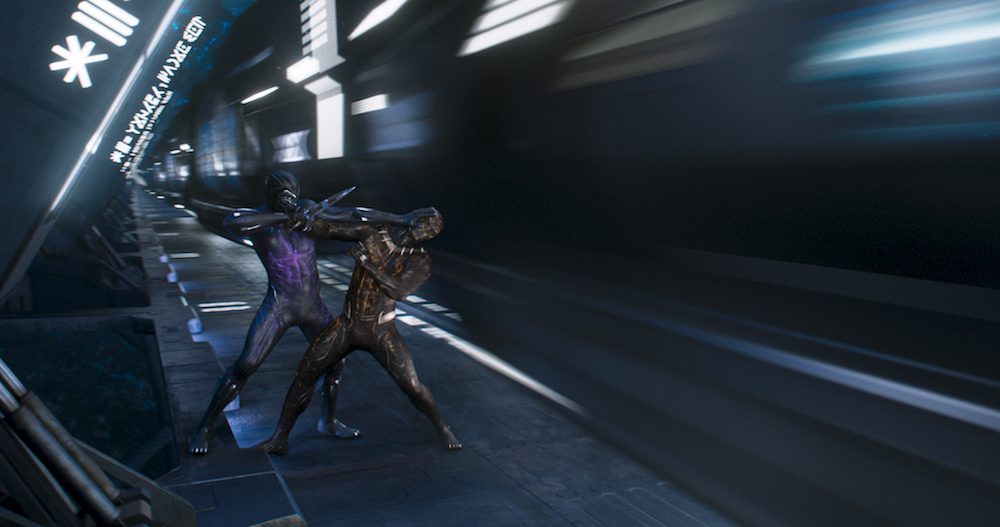
The diversity in “Black Panther” also extends beyond cultural boundaries, shining the spotlight on a cast of strong female characters like Okeye (Danai Gurira), Nakia (Lupita Nyong’o), and even T’Challa’s mother, Ramonda (Angela Bassett). In some ways, this show of gender diversity is more organic than its cultural diversity, since the film doesn’t explicitly emphasise this; and it’s also more compelling than how other “girl power” films do it, since again, the film doesn’t go to great lengths to remind you of the diversity.
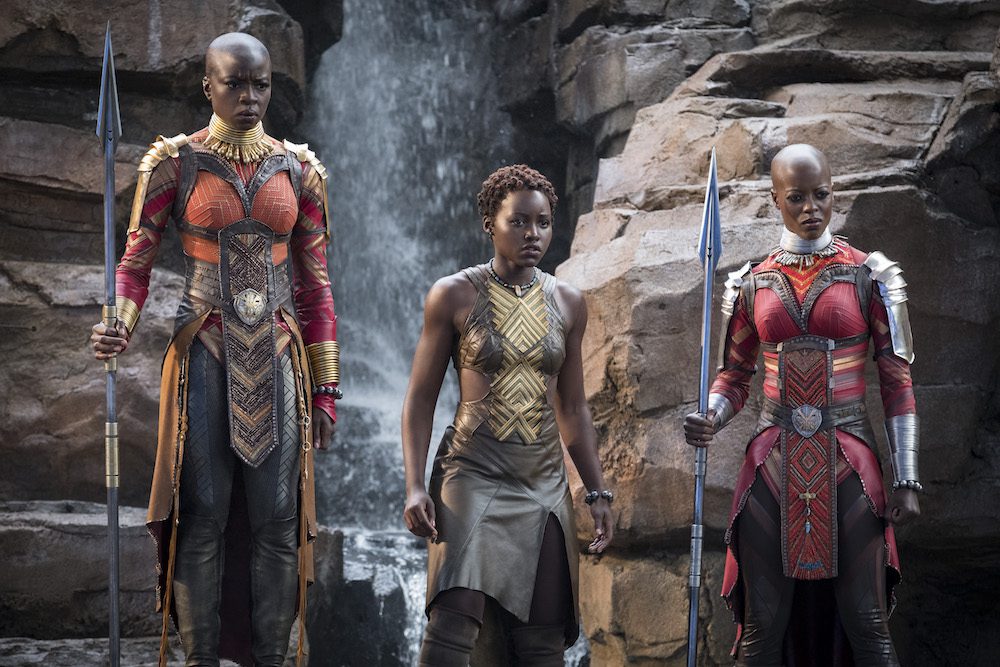
Perhaps the only quibble I have with the film is that the central character seems rather passive. Black Panther is usually not the one who drives the plot – instead, other characters take the lead. That’s not to say that he’s not interesting, but he lacks initiative when it comes saving the day or pushing the plot forward.
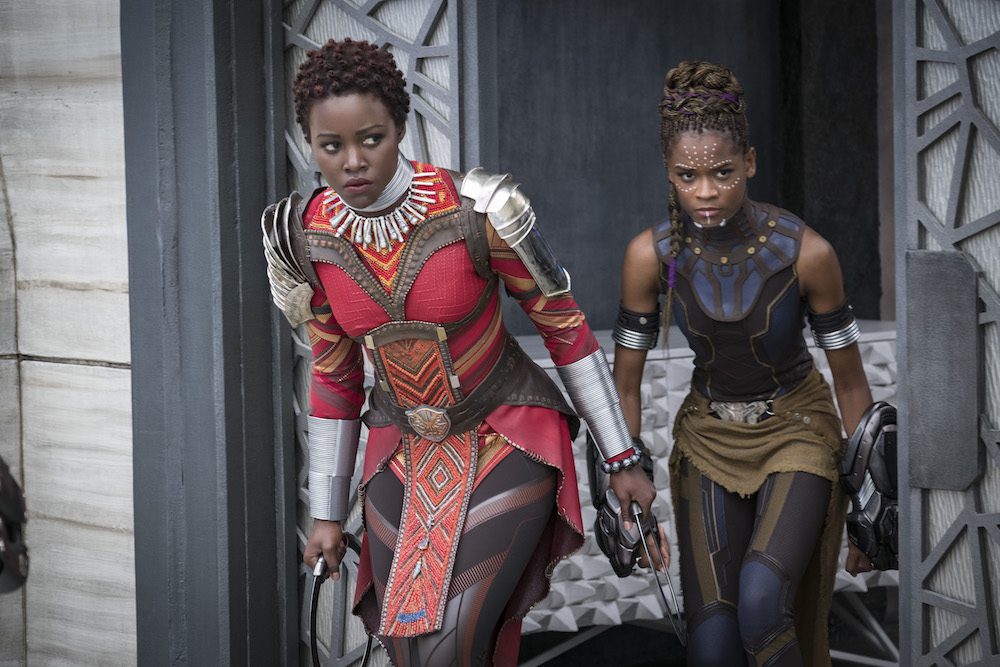
Overall, “Black Panther” is an entertaining story that’s done well with the source material and resources available to it. As part of a cinematic universe, it sets the tone for the great MCU change that “Avengers: Infinity War” seems to be hinting at, and also shifts the focus to a powerful, emerging political force in said universe. It strikes a good balance between its spy movie aspects and its political drama, creating a different sort of superhero film for audiences.
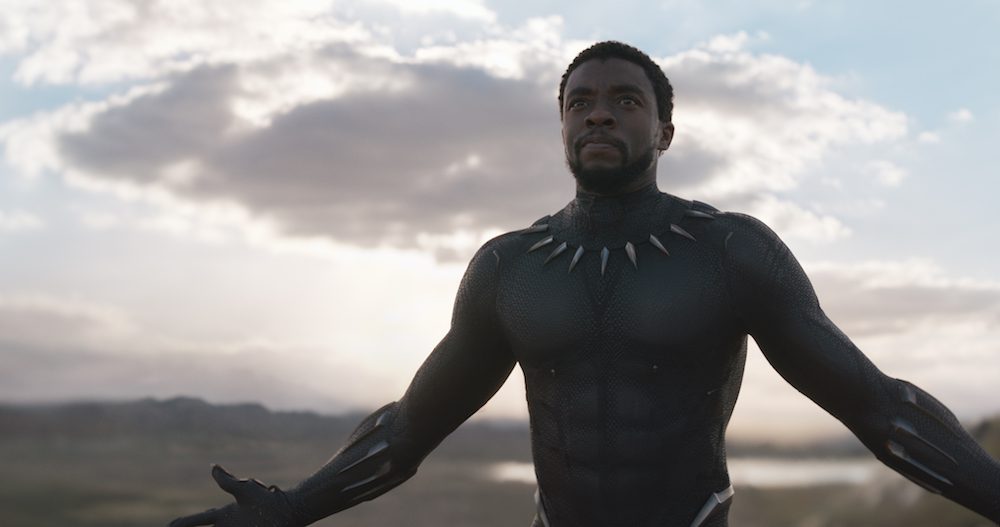
Should you watch this at weekend movie ticket prices? If you like the Marvel Cinematic Universe.
Should you watch this at weekday movie ticket prices? Yes.
Score: 3.6/5
Secret ending? Two.
Running time: 134 minutes (~2.25 hours)
“Black Panther” is a superhero film that’s the eighteenth instalment in the Marvel Cinematic Universe.
The film is directed and written by Ryan Coogler, with additional writing credits for Joe Robert Cole. It stars Chadwick Boseman (Black Panther/T’Challa), Michael B. Jordan (Killmonger/Eric Stevens), Lupita Nyong’o (Nakia), Danai Gurira (Okoye), Martin Freeman (Everett K. Ross), Daniel Kaluuya (W’Kabi), Letitia Wright (Shuri), Winston Duke (M’Baku), Angela Bassett (Ramonda), Forest Whittaker (Zuri), Andy Serkis (Ulysses Klaue). It is rated PG.
You might also want to read:
- [Movie Review] ‘Captain America: Civil War’ raises the bar for superhero films
- [Movie Review] ‘Thor: Ragnarok’ is the best Thor film by far
This is an original article on marcusgohmarcusgoh.com
Follow Marcus Goh (yes, referring to myself in third person) on Facebook and Instagram for more (presumably) good updates!
I’m a Singapore television scriptwriter who’s written for Lion Mums, Crimewatch, Police & Thief, and Incredible Tales. I’m also a Transformers enthusiast and avid pop culture scholar. You can find me on social media as Optimarcus and on my site.
Send me an email if you want to get in touch!
Leave a Reply